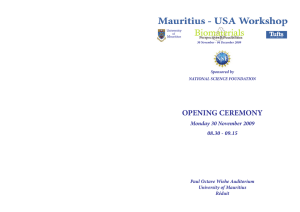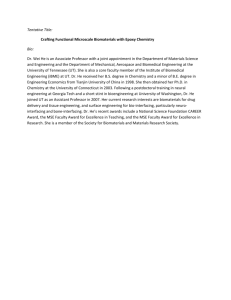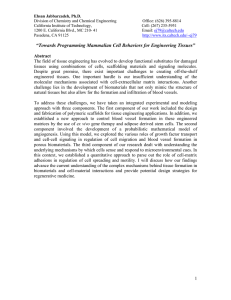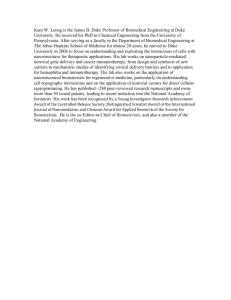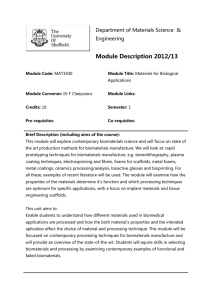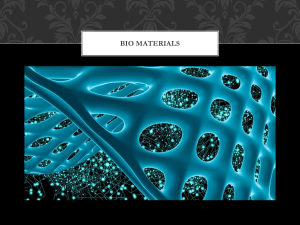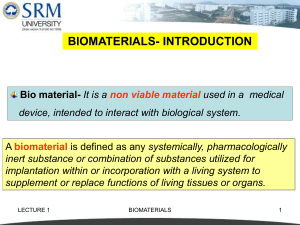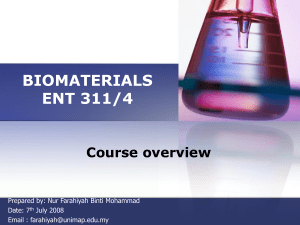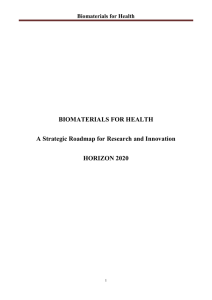The University Chapters Program and the University
advertisement
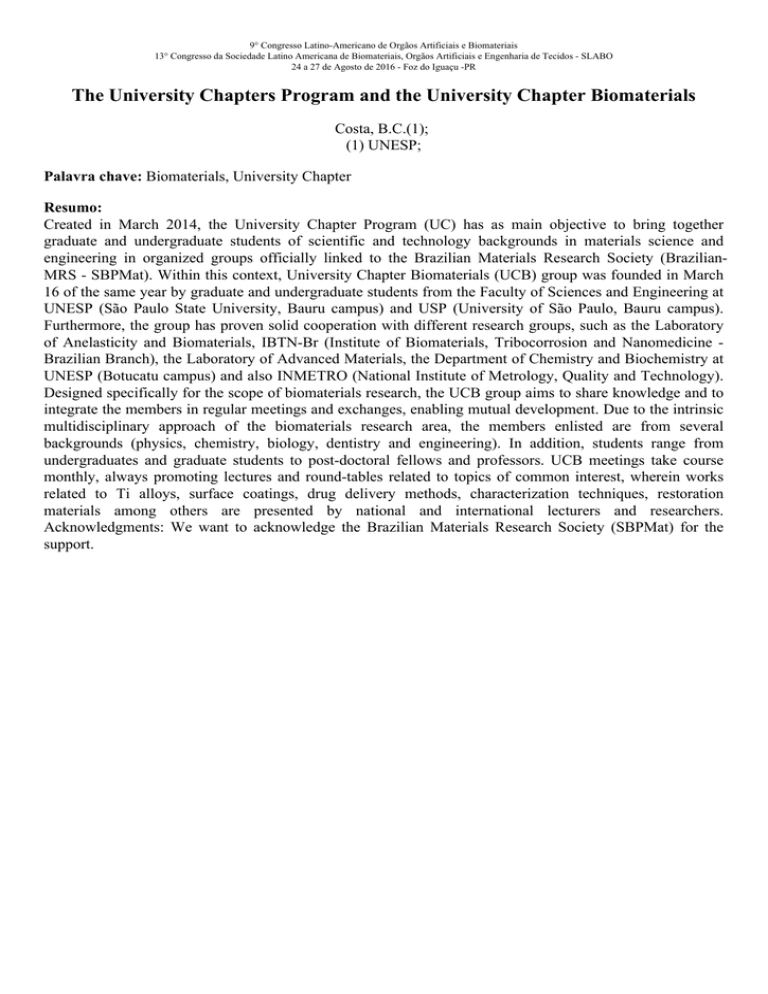
9° Congresso Latino-Americano de Orgãos Artificiais e Biomateriais 13° Congresso da Sociedade Latino Americana de Biomateriais, Orgãos Artificiais e Engenharia de Tecidos - SLABO 24 a 27 de Agosto de 2016 - Foz do Iguaçu -PR The University Chapters Program and the University Chapter Biomaterials Costa, B.C.(1); (1) UNESP; Palavra chave: Biomaterials, University Chapter Resumo: Created in March 2014, the University Chapter Program (UC) has as main objective to bring together graduate and undergraduate students of scientific and technology backgrounds in materials science and engineering in organized groups officially linked to the Brazilian Materials Research Society (BrazilianMRS - SBPMat). Within this context, University Chapter Biomaterials (UCB) group was founded in March 16 of the same year by graduate and undergraduate students from the Faculty of Sciences and Engineering at UNESP (São Paulo State University, Bauru campus) and USP (University of São Paulo, Bauru campus). Furthermore, the group has proven solid cooperation with different research groups, such as the Laboratory of Anelasticity and Biomaterials, IBTN-Br (Institute of Biomaterials, Tribocorrosion and Nanomedicine Brazilian Branch), the Laboratory of Advanced Materials, the Department of Chemistry and Biochemistry at UNESP (Botucatu campus) and also INMETRO (National Institute of Metrology, Quality and Technology). Designed specifically for the scope of biomaterials research, the UCB group aims to share knowledge and to integrate the members in regular meetings and exchanges, enabling mutual development. Due to the intrinsic multidisciplinary approach of the biomaterials research area, the members enlisted are from several backgrounds (physics, chemistry, biology, dentistry and engineering). In addition, students range from undergraduates and graduate students to post-doctoral fellows and professors. UCB meetings take course monthly, always promoting lectures and round-tables related to topics of common interest, wherein works related to Ti alloys, surface coatings, drug delivery methods, characterization techniques, restoration materials among others are presented by national and international lecturers and researchers. Acknowledgments: We want to acknowledge the Brazilian Materials Research Society (SBPMat) for the support.
